kategori film bahasa uzbek
 Mukhabbat an Uzbek immigrant works at...
Mukhabbat an Uzbek immigrant works at...Convenience Store 2022
Mukhabbat, an Uzbek immigrant, works at a convenience store on the outskirts of Moscow. Just like the rest of the immigrants at the store, she is forced to work without getting paid and endure mental and physical abuse, until she overcomes her fear one day and takes her fate into her own hands.
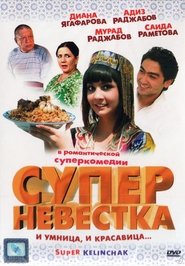 The super kelinchak has found her...
The super kelinchak has found her...Super Daughter-in-Law 2008
The 'super kelinchak' has found her place as a wife and mother yet is as feisty as the mother-in-law who taught her how to become the perfect daughter-in- law...
 A wealthy man hires two bodyguards...
A wealthy man hires two bodyguards...Panoh 2007
A wealthy man hires two bodyguards, one a former paratrooper (Qodirov) and the other just released from prison (Soipov), to protect his two daughters, Gulnoza (Ashurboeva) and Dilnoza (Eshonqulova). Whilst at first the girls are reluctant to accept their fate, they soon realise how lucky they are to have the two young men in their lives…
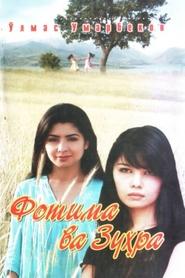 Since Fatima and Zuhras brother did...
Since Fatima and Zuhras brother did...Fatima and Zukhra 2005
Since Fatima and Zuhra's brother did not come home one day, Fatima is worried and goes outside to look for him. Then, the street thugs kidnap and rape Fatima. Fatima commits suicide.
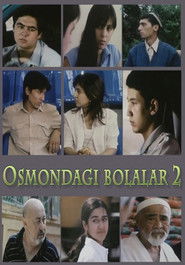 Our four dear friends are about...
Our four dear friends are about...Osmondagi bolalar 2 2003
Our four dear friends are about to graduate from school and start a big life. Khurshid is studying at a medical university, Hamdam is returning from the army, Jawahir is trying to earn money by pawning on the street, and Bakhtiyar is working under his father. They all still love Lola.
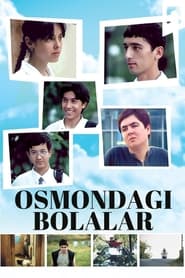 The film follows the lives of...
The film follows the lives of...Osmondagi Bolalar 2002
The film follows the lives of four upper-class teenage boys in Tashkent, Uzbekistan including the shy son of a famous film director, a chubby cut-up, son of a rich and successful businessman, and a tough aspiring playwright who works after school to avoid his raging alcoholic of a father. The four all live in the same housing complex and go to the same high school, where they fall for a beautiful, tough-as-nails new female student. Within the exotic locale of Uzbekistan, the boys experience the usual "growing pains" as they fall in love, "borrow" the family car, work hard to earn extra money and have too much to drink. A funny, touching slice-of-life comedy-drama.
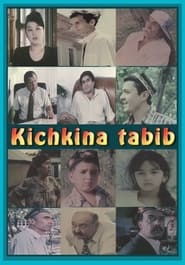 Doniyor has the supernatural power to...
Doniyor has the supernatural power to...Kichkina Tabib 1998
Doniyor has the supernatural power to heal seriously ill people with incurable pain. Thanks to his ability, not a single sick person remained in his village. Shuhrat Shodmonov, a big businessman from Tashkent, comes to him and asks him to treat his granddaughter.
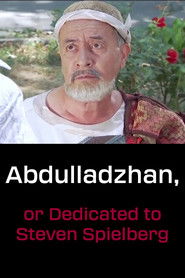 Considering that Musakovs Abdulladzhan 1991 was dedicated...
Considering that Musakovs Abdulladzhan 1991 was dedicated...Abdulladzhan, or Dedicated to Steven Spielberg 1992
Considering that Musakov’s Abdulladzhan (1991) was dedicated to Steven Spielberg, we might suggest that these four boys embody nothing more complicated than a conflict of youthful innocence with some ominous threat—the basic workings of E.T. (1982) or War of the Worlds (2005), say. That threat, however, is best understood not through vague nationalism or warmed-over socialism, but through the other reference-point of Abdulladzhan—Tarkovskii’s Stalker (1980). Musakov leaves his boys in a simplified radiance so bright and so overexposed that it no longer looks like the skies of sunny Tashkent, but a disturbing, borderless luminosity to match the flat tonal range of Stalker’s “Zone.” Our Uzbek boys are nowhere in particular; this is a broader domain than anything international.
 The Mischievous Boy Shum bola a...
The Mischievous Boy Shum bola a...The Mischievous Boy 1978
The Mischievous Boy — "Shum bola", a film on the eponymous story of Gafur Gulyam about the adventures of a little boy, whose restless character makes him different people and life situations.
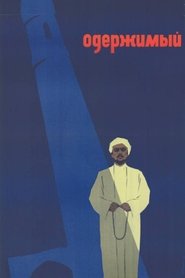 The Red Army soldier Maksud returns...
The Red Army soldier Maksud returns...Possessed 1966
The Red Army soldier Maksud returns with a detachment of the Red Army to his native village. Maksud sees that nothing has changed in the village — just like in the old days, the bai are rampaging, oppressing the people: bek Rahmankul ordered the hanging of two dehkans who plowed the land that the Soviet government gave them. Obsessed with hatred of the new order, Rahmankul asks Sheikh Abbas to give him the treasures of the mosque to arm his gang.
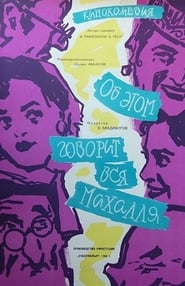 The events in Mahallada duvduv gap...
The events in Mahallada duvduv gap...Mahallada duv-duv gap 1960
The events in Mahallada duv-duv gap occur in a mahalla — a traditional Uzbek neighborhood — in an old part of Tashkent at a time when big-scale construction works are taking place. The movie humorously depicts the relationships between traditional parents and their modern children.
 An agent of the Uzbek special...
An agent of the Uzbek special...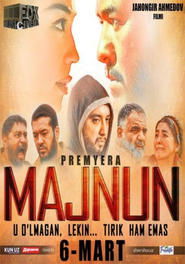 The film is about the life...
The film is about the life...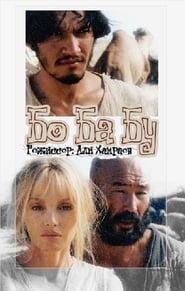 Two barbarians in the desert find...
Two barbarians in the desert find...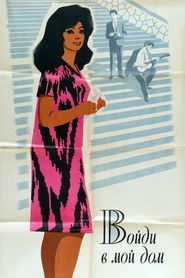 A young journalism student from Moscow...
A young journalism student from Moscow...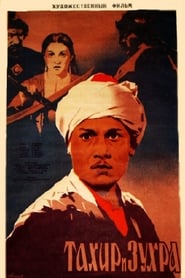 A Romeo Julietesque tale set in...
A Romeo Julietesque tale set in...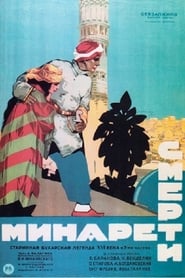 Based on an old Bukharan mythical...
Based on an old Bukharan mythical...